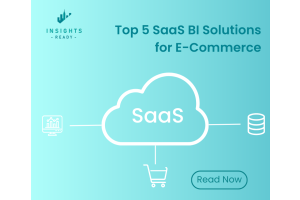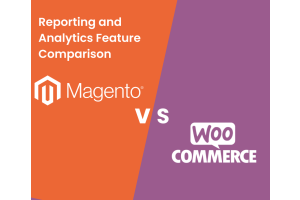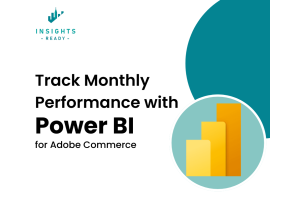We use cookies to improve your experience on our website and for marketing. Private Policy.
Navigating the Fog of Uncertainty: The Power of Informed Decisions in Business

"Without data, you're just another person with an opinion." W. Edwards Deming
Rediscovering 'Informed Decisions'
In the whirlwind of entrepreneurial jargon, the essence of 'informed decisions' often gets lost. It's a term so frequently used in business circles that its true weight can be overlooked. Entrepreneurs understand the challenges of decision-making in the face of uncertainty and limited information. Yet, ironically, many businesses continue to make uninformed decisions even when they have the means to gather supporting data. This habitual inclination towards uncertainty needs a reevaluation.
The Mirage of Certainty in Business
The business landscape, inherently dynamic and unpredictable, often compels leaders to make quick decisions. In this environment, the lure of 'going with the gut' can be strong. It's a decision-making approach that's immediate, instinctive, and deeply human. However, this reliance on intuition, while sometimes successful, can also be a deceptive mirage, offering a false sense of certainty in an otherwise uncertain world.
The Forgotten Power of Data
Amidst the whirlwind of daily operations, the power of data-driven decision-making is often forgotten. Many businesses, bogged down by the urgency of immediate decisions, overlook the wealth of insights lying dormant in their own data. This oversight is not just a missed opportunity; it's a detour from the path to optimal decision-making.
The Habit of Uncertainty
There's an intriguing dichotomy in business decision-making the allure of gut instinct versus the rationality of data-driven choices. Historically, business leaders have been celebrated for their intuitive leaps, making bold decisions in the absence of complete information. This intuitive approach, while commendable in certain situations, can lead to a dangerous precedent if overused.
Intuition vs. Information
- The Charm of Intuition: Making decisions based on instinct can be swift and decisive, but it carries inherent risks.
- The Overlooked Power of Data: Often, businesses possess a goldmine of data that goes underutilized due to a reliance on intuition.
- Barriers to Data Utilization: Lack of understanding, absence of the right analytical tools, or intimidation by the sheer volume of data can hinder its effective use.
The shift from intuition to informed decision-making requires not just a change in tools but a transformation in mindset.
Navigating the Shift to Data-Driven Decision-Making
Transitioning from reliance on intuition to a framework rooted in data-driven decision-making is akin to navigating uncharted waters. It's a comprehensive process that involves more than just technological upgrades; it's about evolving the organizational culture and perspective.
Fostering a Data-First Approach
- Executive Advocacy: The journey begins with leadership embracing data-centric strategies, setting a model for the organization to follow.
- Data Empowerment for Staff: Providing teams with data access and analytical skills nurtures an environment where decisions are grounded in data rather than instinct alone.
- Recognizing Data-Informed Achievements: Sharing success stories of data-led initiatives underlines the effectiveness of this method and motivates the team.
Integrating BI as a Core Tool
- Intuitive BI Solutions: Introducing user-friendly BI tools ensures that all employees, regardless of their technical prowess, can engage with data analytics.
- Routine Data Integration: Embedding data analysis into everyday decision-making processes facilitates a gradual shift from intuition-based to data-informed practices.
- Access to Updated Information: Providing real-time data ensures that decisions are made based on the latest, most relevant information.
Addressing the Challenges in Adopting Data
- Streamlining Data Interpretation: Simplifying the way data is presented and focusing on essential metrics helps avoid the pitfalls of data overload.
- Reliability in Data: Building trust in data through accuracy and consistency is key to fostering confidence in data-driven decisions.
- Cultivating a Learning Environment: Creating a culture that values data literacy and learning from data, as well as from occasional missteps, encourages a balanced approach to decision-making.
Conclusion: Embracing the Clarity of Data
Embracing BI and data-driven decision-making marks a new era of business intelligence, where informed decisions lead to sustainable growth. Let data guide your journey to success.
Let data guide your journey to success.
Discover how BI can revolutionize your decision-making process with Insights Ready as your partner.







